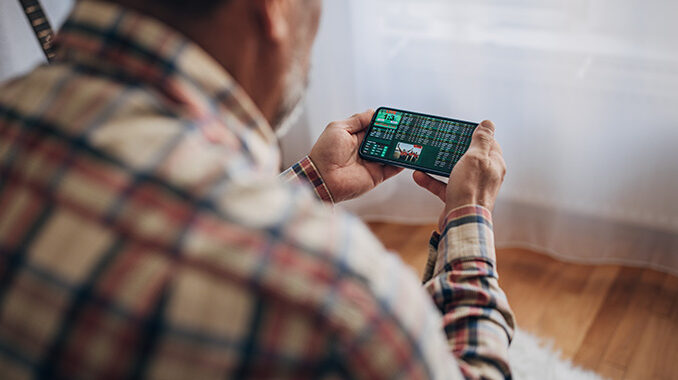
It’s easy to get caught up in the thrills of spinning the reels. This is me speaking from my past and present experience. As someone who’s been around casino floors and online gambling platforms, I’ve known this for a long time. Today, I want to share some insights into the psychology behind responsible slot play, because right now it feels more important than ever. The information will be based on what I’ve learned about human behavior and cognitive biases though both first-hand experience and research.
State-owned platforms like NorskTipping demonstrate responsible gambling integration, operating since 1986 with mandatory personal number verification, automatic payouts at 10,000 NOK, and comprehensive player protection tools alongside their KongKasino platform featuring 100+ slots with transparent RTP rates.
Role of Dopamine
No matter how you put it, you can actually call slot machines dopamine delivery systems. Every spin triggers anticipation. Near wins or actual payouts flood the brain with this “reward chemical,” reinforcing the behavior. Neuroscientific research shows that the unpredictability of rewards (variable ratio reinforcement) makes dopamine surges more intense than predictable wins.
This biochemical loop creates a craving for “just one more spin”. Basically, it overrides any semblance of rational decision-making. Trust me on this. I’ve felt that pull many times and I continue to feel it every single day.
Two Most Common Themes of Irresponsible Slot Play
While many factors drive problematic gambling, two psychological traps dominate irresponsible slot play. I’m going to give them cliché names: the Illusion of Control and the Psychology of Near Misses. These exploit cognitive biases to keep us spinning way beyond any rational limits.
Illusion of Control: Why Players Believe They Can Influence Outcomes?
Players often falsely believe their actions can sway random outcomes. This bias is amplified by slot machine design, sadly enough. Here is a breakdown of key features:
- “Skill Stop” Buttons. Games allow players to stop reels, which, strangely enough, creates the delusion of timing-based skill.
- Personal Rituals. Lucky charms or “hot machine” superstitions (e.g., touching the screen, specific bet sequences).
- Bet Sizing Myths. Believing max bets or “strategic” wager changes impact odds.
- Outcome Narratives. Interpreting random wins as proof of a “system” (e.g., “I won when I played after 9 PM!”).
Ellen Langer’s landmark 1975 work, “The illusion of control”, proved humans perceive randomness as skill-based when given choice and/or familiarity. 50+ years later, we still fall for it!
Psychology of Near Misses
Near misses (e.g., two jackpot symbols + one just above/below) feel like almost winning, but neurologically, they register like actual wins. To expand on that, here are a few key features of near misses:
- Dopamine Surge. Brain scans show near misses activate the same reward pathways as wins.
- False Learning. Players subconsciously perceive near misses as progress toward a win (“I’m getting closer!”).
- Continued Play. A near miss increases motivation to spin again more than a total loss.
- Design Exploitation. Slots intentionally position “near win” symbols adjacent to jackpot icons.
- “One-Off” Effect. Seeing a symbol one position away feels controllable.
Understanding these mechanics becomes clearer when you observe them in action through demos like https://slotspeak.net/rocky-demo/, where you can witness near-miss patterns without financial pressure.
Psychological Mechanics That Will Help You
I did extra research to give you a list of research-backed strategies that will help you combat any and all problematic urges. Take a look:
- Pre-Commitment (Implementation Intentions – Gollwitzer, 1999). Before playing, set immutable limits: “I will spend $50 and quit after 30 minutes, win or lose.” Write it down. This uses the psychological principle of reducing decision fatigue in “hot states.”
- Temporal Distancing (Kross, 2020). When chasing losses, ask: “How will I feel about this tomorrow?” Creating psychological distance disrupts emotional impulsivity.
- Cognitive Reframing (Beck, CBT). Re-label near misses: “This is a programmed loss, not encouragement.” Better yet, accept randomness after researching the Law of Large Numbers: short-term outcomes are meaningless noise.
- Self-Determination Theory (Deci & Ryan, 2000). Reclaim autonomy: “Am I playing by choice or compulsion?” Detach from outcome fixation. Instead, focus solely on entertainment value.
- Loss Aversion Mitigation (Kahneman & Tversky, 1979). Treat your bankroll as “entertainment expense” (like movie tickets), not potential winnings. This reduces the pain of losses and, therefore, your desire to chase them.
- “10-Minute Rule” (Delay Discounting). If you feel the urge to break limits, pause for 10 minutes. Neuroplasticity research shows delaying action weakens impulsive urges.
Remember: Slots are designed to feel beatable. By understanding the tricks your brain plays as well as deploying these heavy-duty psychological countermeasures, you reclaim agency. Play for fun, not fortune.

Leave a Reply